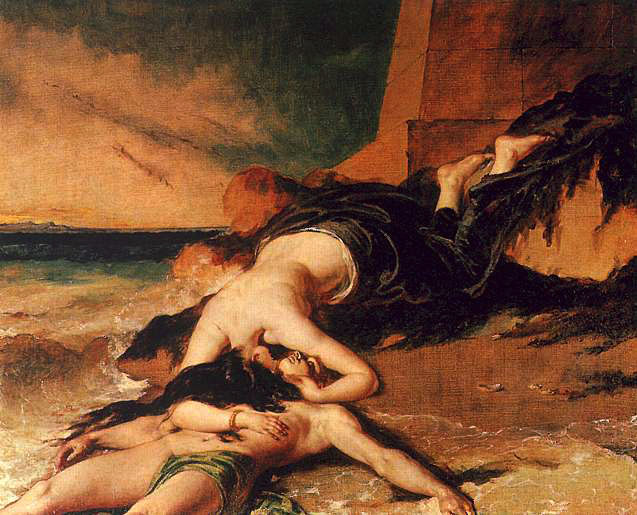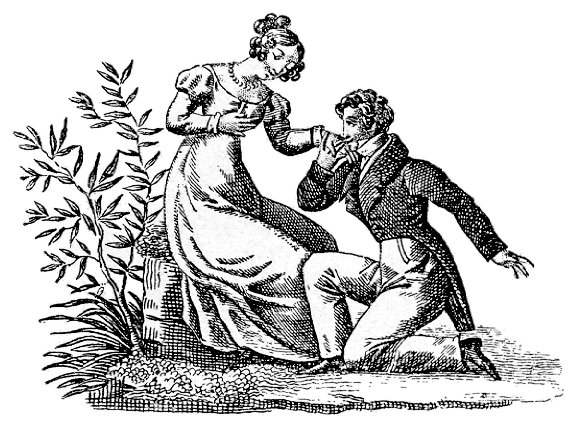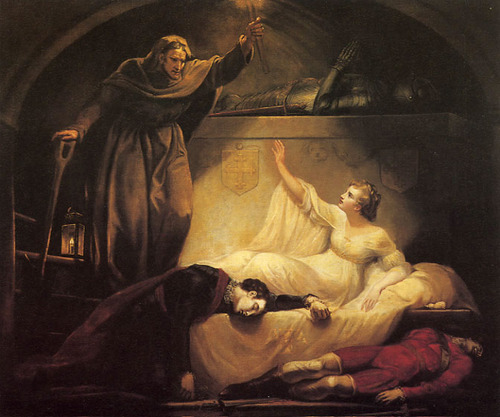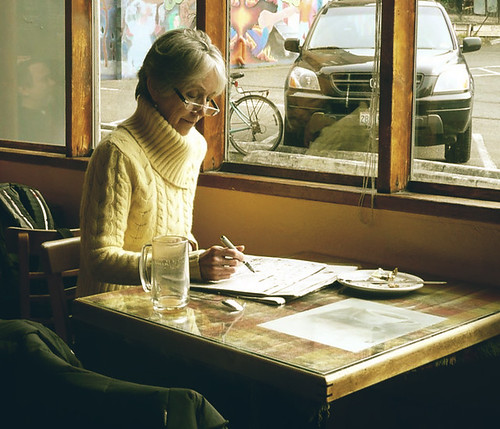“Santa Claus never died for anybody.”
Craig Wilson
Love
A movie I saw the other day set me to thinking about love, about the great lovers of fact and fiction, and what it is that makes their love stand out. Who do you think of?
People have been writing about Hero and Leander for the last two thousand years. As the story goes, Leander drowns trying to swim from Asia to Europe to visit his lady love. In a storm. Amantes amentes, indeed. (Lovers = lunatics.)
Of course, love is not simply a feeling (or a mental condition), but a choice – a perpetual choice. Witness Edward Ferrars of Sense and Sensibility, who though no longer in love with his fiancée, refuses to dump her when he is offered the choice between her and continued financial security. Though he does not feel love for her, he continues to behave in a loving way.
In contrast, we have John Willoughby from the same novel, who, though very dashing and poetic, chooses wealth over the woman he loves – he’s got the feels, but one scorns to call that love which plays second fiddle to self-interest.
As Shakespeare so memorably wrote: love is not love which alters when it alteration finds. Another distinctive of great love: that it doesn’t change, though all changes around it. Constancy despite circumstances.
Great lovers have also been known to defy society’s conventions. People who marry across the lines – though frequently unmarked by history – would, I argue, fall under this category. Joseph, for example, who marries his pregnant fiancée knowing full well that this will be assumed to be admission of paternity and thus send his reputation after hers on the stony road to ostracism.
The reputation of unrequited love has taken a hit of late with the increased awareness of stalking – but obviously, that isn’t love. And we might still have a grudging admiration for someone who loves from as great a distance as the loved one is comfortable with – even as we think they’d be better off getting over this one and moving on. One thinks of the medieval knight who chose to fight for the honour of a lady who wouldn’t even agree to meet him for the first fifteen years or so.
More rare is the one who loves despite knowing that their loved one is unworthy of that love. Hosea, for example, who marries a prostitute, knowing she’s going to cheat on him, and that the children she bears may well not be his.
Or the completely different man known as Sinner, of Simon R. Green‘s Hex and the City, whose love for his wife is not altered by finding out that she is a demon succubus sent to entrap him. Hell can’t stomach that sort of love, so it spits him back out.
Rather more famous: Romeo and Juliet, who defied the strictures of their families (Thou Shalt Not Fall in Love with One of Them) and eventually killed themselves rather than live without each other – although to be fair, each thought the other was dead first, so it’s not like they considered suicide as their Option A.
Then there’s the classic tale of Orpheus, who dares go living into the world of the dead to save the one he loves. Unfortunately for her (and him) his bravery is greater than his ability to follow instructions – but that’s another story.
And you could fill a compendium of omnibuses (omniboi?) with tales of those who have died for the ones they love. As it is written, “there is no greater love than this…” (John 15:13).
Great lovers put their loved one ahead of their own comfort or convenience; ahead of their own lives. Their love does not change, even when their loved one does. They will defy family, society, and even death itself to be with their loved one. Sometimes they are even portrayed as defying God himself – as though their love is stronger, and forces him to give way.
And this is where I think we are making our mistake.
This kind of love isn’t against God – because this is God’s love.
This is the love which leaves paradise to be with the beloved. A love that refuses to be bound by convention. A love that is unchanging and unchangeable, constant in the face of fickleness and betrayal. A love undaunted by indifference, neglect and even loathing. A love that will sacrifice its own life for the good of the beloved and to avoid being separated from them, and yet despite all this will not force its love on them – this is the love of God.
The qualities we admire and venerate in the great lovers of time and tale are facets in the complete and perfect love of God. It is in our love that we come closest to the divine.
Dare to Dream
What do you do when your dreams come true?
I’ve just been re-reading this post again. I wrote it over half a year ago, and yet it seems so pertinent to my present situation.
I wrote that post in a fairly rare burst of hope – and now I have received what I hoped for. As I wrote back then, “you can’t out-dream God.”
As full as my morning pages (and let’s be honest, blog posts) were of chafing against the DDJ, wishing to be freed of it and hoping to ‘one day’ be a full-time writer, I didn’t actually expect it to happen.
Not that I thought I was going to grow old and die in the DDJ, but I didn’t really think that I was going to get the chance to live my dream, either. I expected to settle for second best. Or third best. Food on the table, anyway.
Or else I thought that yes, God has a purpose for my life, but it’s probably something deeply self-sacrificial and rather unpleasant. As Julia Cameron writes, “We are not accustomed to thinking that God’s will for us and our own inner dreams can coincide.”
As much as I felt sorry for the poor historical figures who thought that God would be pleased at them seeking out suffering (and usually pointless suffering – pointy suffering seldom works to your timetable), deep down I believed the same.
I didn’t really believe that God’s will for my life could be something I’d enjoy. I underestimated God. (As J.B. Phillips wrote, Your God Is Too Small.)
This is not to say that whatever you want to do must be what God wants, too – but it doesn’t mean it can’t be.
I don’t know what God’s dream is for the rest of my life (or how long that is) – maybe I’ll always be a full-time writer, maybe I won’t. I don’t know.
What I do know is that the dream I have scarcely dared to dream for tens of years, the dream so dear I have sometimes not dared hold it close for the pain of losing it – that dream is about to come true.
And now I have to live up to it.
The problem with a dream life is that it isn’t real. You can imagine you’ll be as perfect as – well, as perfect as you can imagine. When you actually get there it turns out you are still not perfect yet and you still have to contend with all the weaknesses of character that have plagued you all along.
But you can dream of being better, and work at making that dream come true.
What do you dare to dream? And what are the dreams you don’t yet dare?










